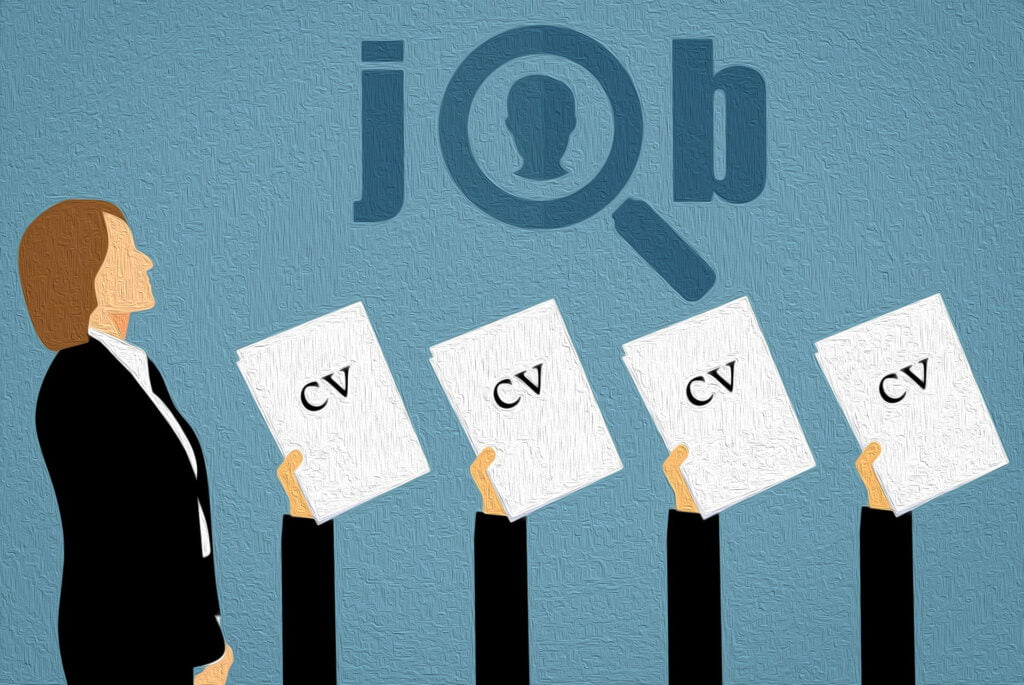Have doubt on how to become a Human Resource Manager? Human Resource (HR) Managers play a crucial role in shaping company culture, managing employee relations, and ensuring businesses run smoothly. But how do you become one? Whether you’re just starting out or looking to climb the corporate ladder, this guide will walk you through everything you need to know—from education and skills to landing the job.
By the end of this article, you’ll have a clear roadmap to becoming an HR Manager, including insider tips on acing interviews and standing out in this competitive field. Ready to dive in? Let’s get started!
What Is Human Resource Management?
Before jumping into how to become an HR Manager, it’s essential to understand what Human Resource Management (HRM) actually is.
HRM is the strategic approach to managing a company’s most valuable asset—its people. It covers everything from recruitment, training, and performance management to employee benefits, workplace safety, and conflict resolution.
Think of HR as the backbone of any organization. Without an effective HR team, companies would struggle with high turnover, poor employee morale, and legal compliance issues.
Key Functions of HRM
- Recruitment & Hiring – Finding and onboarding the right talent. read more about recruitment
- Employee Development – Training programs and career growth opportunities.
- Compensation & Benefits – Managing salaries, bonuses, and perks.
- Workplace Culture – Ensuring a positive and inclusive environment.
- Legal Compliance – Adhering to labor laws and regulations.
Now that you know what HRM entails, let’s explore who an HR Manager really is.
Who Is a Human Resource Manager?
An HR Manager is the go-to person for all things related to employees within an organization. They bridge the gap between staff and upper management, ensuring that both sides are happy and productive.
But it’s not just about resolving conflicts or handling payroll—HR Managers are strategic leaders who influence company policies, drive engagement, and even shape corporate culture.
Roles and Responsibilities of an HR Manager:
- Overseeing hiring and onboarding processes.
- Developing employee training programs.
- Managing performance reviews and promotions.
- Handling disciplinary actions and terminations.
- Ensuring legal compliance with labor laws.
- Acting as a mediator in workplace disputes.
Sounds like a big job, right? That’s because it is! But with the right skills and experience, you can thrive in this role.
Human Resource Manager Job Description
An HR Manager’s role is dynamic, requiring a balance of people skills, legal knowledge, and strategic thinking. They are essential in building a productive, compliant, and motivated workforce. If you’re detail-oriented, empathetic, and a strong communicator, this career offers both challenges and rewarding opportunities. some job roles of a human resource manager are as follows,
1. Recruitment & Staffing
The HR Manager oversees the entire hiring process, from posting job openings to onboarding new employees. They collaborate with department heads to identify staffing needs, draft compelling job descriptions, and screen applicants to find the best talent. Beyond just reviewing resumes, they conduct interviews, check references, and negotiate job offers. A key part of their role is ensuring a smooth onboarding experience, helping new hires integrate into the company culture while completing necessary paperwork and training.
2. Employee Relations & Conflict Resolution
Maintaining a positive workplace environment is a top priority for HR Managers. They act as mediators in disputes between employees or between staff and management, working to resolve conflicts fairly and professionally. Whether addressing grievances, handling disciplinary actions, or fostering team collaboration, they ensure that company policies are applied consistently. By promoting open communication and trust, they help create a workplace where employees feel valued and heard.
3. Policy Development & Compliance
HR Managers establish and enforce company policies to ensure fairness, safety, and legal compliance. They stay updated on labor laws, workplace regulations, and industry standards to minimize legal risks. This includes drafting employee handbooks, updating anti-discrimination policies, and ensuring proper documentation for audits. They also train staff on company policies, making sure everyone understands workplace expectations and their rights.
4. Compensation & Benefits Administration
One of the most critical responsibilities of an HR Manager is managing employee compensation, including salaries, bonuses, and benefits packages. They research industry standards to ensure competitive pay structures, oversee payroll processing, and handle benefits enrollment (such as health insurance, retirement plans, and paid leave). Additionally, they may negotiate with insurance providers and vendors to secure cost-effective benefits that attract and retain top talent.
5. Training & Professional Development
HR Managers design and implement training programs to enhance employee skills and career growth. They assess workforce needs, organize workshops, and coordinate leadership development initiatives. Whether it’s compliance training, technical upskilling, or soft skills coaching, they ensure employees have the resources to succeed. They also track performance metrics to measure the effectiveness of training programs and adjust strategies as needed. Read more about T & D
6. Performance Management & Appraisals
To maintain a high-performing workforce, HR Managers oversee employee evaluations and performance reviews. They develop appraisal systems that align with company goals, provide managers with structured feedback tools, and guide discussions on promotions or performance improvements. By identifying top performers and addressing underperformance, they help cultivate a culture of accountability and continuous growth.
7. Workplace Health & Safety Compliance
Ensuring a safe and healthy work environment is another crucial duty. HR Managers implement safety protocols, conduct risk assessments, and ensure compliance with OSHA (or local) regulations. They handle workers’ compensation claims, organize safety training, and address any workplace hazards promptly. Their proactive approach helps prevent accidents and fosters employee well-being.
8. HR Data Management & Reporting
HR Managers use HR software (such as Workday, BambooHR, or SAP) to maintain employee records, track attendance, and generate reports. They analyze workforce trends—such as turnover rates, hiring metrics, and employee satisfaction—to provide insights for strategic decision-making. Accurate data management ensures smooth HR operations and supports long-term business planning.
9. Strategic HR Planning & Organizational Development
Beyond day-to-day tasks, HR Managers contribute to long-term business success by aligning HR strategies with company objectives. They analyze workforce needs, forecast hiring demands, and develop retention strategies. Whether expanding teams, restructuring departments, or improving employee engagement, they play a key role in shaping the company’s future.
Education Requirements for a Human Resource Manager
You might be wondering: “Do I need a degree to become an HR Manager?”
The short answer? Yes, but there are multiple pathways.
Common Educational Paths:
🎓 Bachelor’s Degree in HR, Business Administration, or Psychology – Most entry-level HR roles require at least a bachelor’s.
🎓 Master’s Degree (MBA or HRM) – Useful for senior roles and higher salaries.
🎓 HR Certifications (SHRM-CP, PHR, SPHR) – Boosts credibility and job prospects.
Alternative Routes:
- Starting in administrative or recruiting roles and working your way up.
- Taking online HR courses (Coursera, Udemy, LinkedIn Learning).
- Gaining hands-on experience through internships.
While a degree helps, experience and certifications can sometimes outweigh formal education
Required Skills for a Human Resources Manager
HR isn’t just about rules—it’s about people. The best HR Managers blend soft skills with hard skills to create workplaces where employees and businesses succeed together.
Here’s a breakdown of the key skills you’ll need—and why they matter:
1. Communication Skills
Why it’s important: HR Managers constantly interact with employees, executives, and job candidates. You’ll explain policies, resolve conflicts, and present ideas clearly—both in writing and speaking.
How to use it:
- Writing clear emails, handbooks, and reports.
- Conducting effective interviews and meetings.
- Listening actively to employee concerns.
2. Conflict Resolution
Why it’s important: Workplace disputes happen—whether it’s clashing coworkers or manager-employee tensions. HR Managers must mediate fairly to keep morale high.
How to use it:
- Staying neutral and empathetic during disagreements.
- Finding compromises that satisfy all parties.
- Preventing small issues from escalating.
3. Leadership & Decision-Making
Why it’s important: HR Managers guide company culture, enforce policies, and make tough calls (like layoffs or promotions). Strong leadership keeps teams motivated.
How to use it:
- Setting a positive example for employees.
- Making unbiased, data-driven decisions.
- Handling crises (like harassment claims) with confidence.
4. Organizational Skills
Why it’s important: HR juggles hiring, payroll, training, and compliance—all at once. Staying organized prevents costly mistakes.
How to use it:
- Managing deadlines (like payroll processing).
- Keeping employee records accurate and secure.
- Prioritizing urgent tasks (e.g., resolving a complaint vs. planning a training session).
5. Knowledge of HR Software & Data Analysis
Why it’s important: Modern HR relies on tools like Workday, BambooHR, or ADP for payroll, recruiting, and performance tracking. Data helps spot trends (like high turnover).
How to use it:
- Running reports on hiring metrics or employee satisfaction.
- Using software to streamline onboarding or benefits enrollment.
- Analyzing data to suggest improvements (e.g., “Why are employees leaving?”).
6. Understanding of Labor Laws
Why it’s important: HR ensures the company follows employment laws (like overtime pay, discrimination rules, or FMLA). Mistakes can lead to lawsuits.
How to use it:
- Updating policies to comply with new regulations.
- Training managers on legal do’s and don’ts.
- Handling sensitive issues (like ADA accommodations) correctly.
7. Emotional Intelligence (EQ)
Why it’s important: HR deals with sensitive topics—layoffs, personal complaints, or career frustrations. High EQ helps you navigate these with tact.
How to use it:
- Reading nonverbal cues in tense conversations.
- Offering support during difficult transitions (like firings).
- Building trust so employees feel safe coming to you.
8. Negotiation Skills
Why it’s important: HR Managers negotiate salaries, union contracts, vendor deals, and even conflict resolutions. Good negotiators save money and keep peace.
How to use it:
- Balancing employee raises with budget limits.
- Mediating between management and staff during disputes.
- Securing better benefits packages from providers.
How to Become a Human Resources Manager -Step-by-Step Guide
Now, the million-dollar question: How do you actually become an HR Manager?
Breaking into HR management takes strategy and persistence. Here’s your clear roadmap to success, with actionable advice for each step:
Step 1: Get a Relevant Degree
Why it matters: Most HR Manager roles require at least a bachelor’s degree. It gives you foundational knowledge in employment law, organizational behavior, and business operations.
How to do it:
- Pursue a Bachelor’s in HR, Business Admin, or Psychology (most common paths)
- Consider minors in Communications or Labor Relations for extra edge
- Look for programs with internship opportunities – real-world experience matters
Pro Tip: No degree? Some companies accept HR certifications + experience as equivalent.
Step 2: Gain Entry-Level HR Experience
Why it matters: You can’t manage HR without understanding daily operations. Entry-level roles teach you payroll, hiring, and employee relations.
Where to start:
- HR Assistant/Coordinator (learn administrative basics)
- Recruiter (master hiring processes)
- Training Specialist (develop employee development skills)
Key Move: Volunteer for cross-departmental projects to expand your visibility.
Step 3: Earn HR Certifications
Why they matter: Certifications validate your expertise and often lead to 20% higher salaries (SHRM data).
Top Choices:
- SHRM-CP (Society for HR Management) – Best for early-career
- PHR (HR Certification Institute) – Focuses on technical HR knowledge
- aPHR (For those without HR experience yet)
Smart Strategy: Many employers pay for certifications – ask about tuition reimbursement!
Step 4: Develop Critical HR Skills
Why it matters: HR Managers need both hard and soft skills to succeed.
Must-Have Skills to Build:
✔ Conflict resolution – Practice mediating disputes
✔ HR analytics – Learn to interpret turnover/engagement data
✔ Employment law – Stay updated on regulations
✔ Leadership – Mentor junior staff or lead projects
Power Move: Join SHRM or local HR associations for networking and skill-building events.
Step 5: Apply for HR Manager Positions
Breaking into management requires strategy:
- Tailor your resume to highlight leadership experience
- Leverage your network – Many HR jobs come through referrals
- Prepare for behavioral interviews (use STAR method for answers)
Final Push: Consider specializing (like in Talent Acquisition or Labor Relations) to stand out.
Bonus: Accelerate Your Timeline
Want to move up faster? Try these career boosters:
🚀 Take on stretch assignments (lead a policy revamp)
🚀 Get mentored by a senior HR leader
🚀 Switch companies if growth stalls
Remember: The average time to become an HR Manager is 5-8 years, but focused professionals can do it in 3-5.
Interview Questions for a Human Resources Manager
Once you’re ready to apply, you’ll need to nail the interview. Here are some common HR Manager interview questions:
General HR Questions:
❓ “How do you handle conflicts between employees?”
❓ “What strategies do you use to improve employee retention?”
Situational/Behavioral Questions:
❓ “Describe a time you resolved a difficult workplace issue.”
❓ “How would you handle an employee violating company policy?”
Technical HR Questions:
❓ “What HR software are you proficient in?”
❓ “How do you ensure compliance with labor laws?”
Pro Tip: Use the STAR method (Situation, Task, Action, Result) to structure your answers
Summary – Key Takeaways
Becoming an HR Manager is a rewarding career path that blends people skills with strategic thinking. Here’s a quick recap:
✔ HR Management is about optimizing workforce performance.
✔ An Human Resource Manager oversees hiring, training, and employee relations.
✔ A bachelor’s degree in HR or business is typically required.
✔ Certifications (SHRM, PHR) can boost your career.
✔ Soft skills (communication, leadership) are just as crucial as technical skills.
✔ Gaining experience in entry-level HR roles is essential.
✔ Networking and certifications help land higher-paying jobs.
If you’re passionate about helping people and driving organizational success, a career as an HR Manager could be your perfect fit. Start today—your future in HR awaits!




